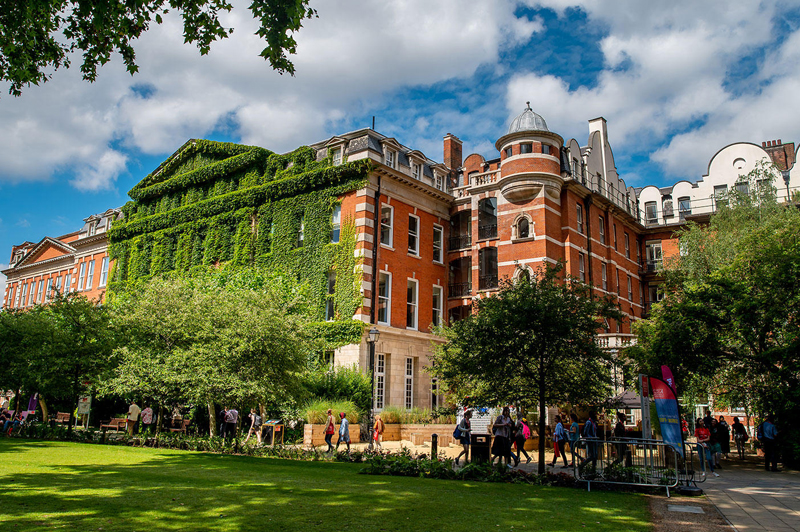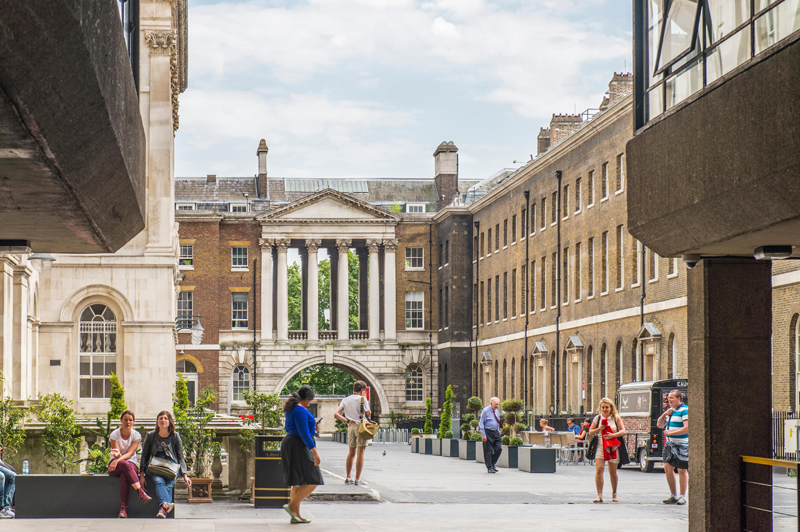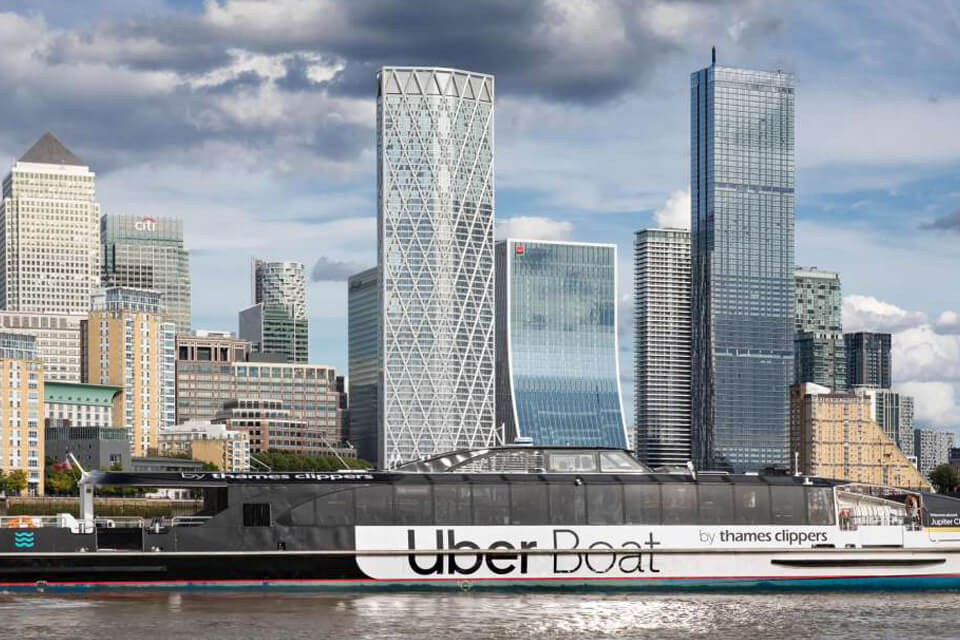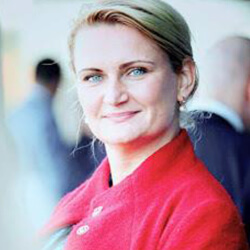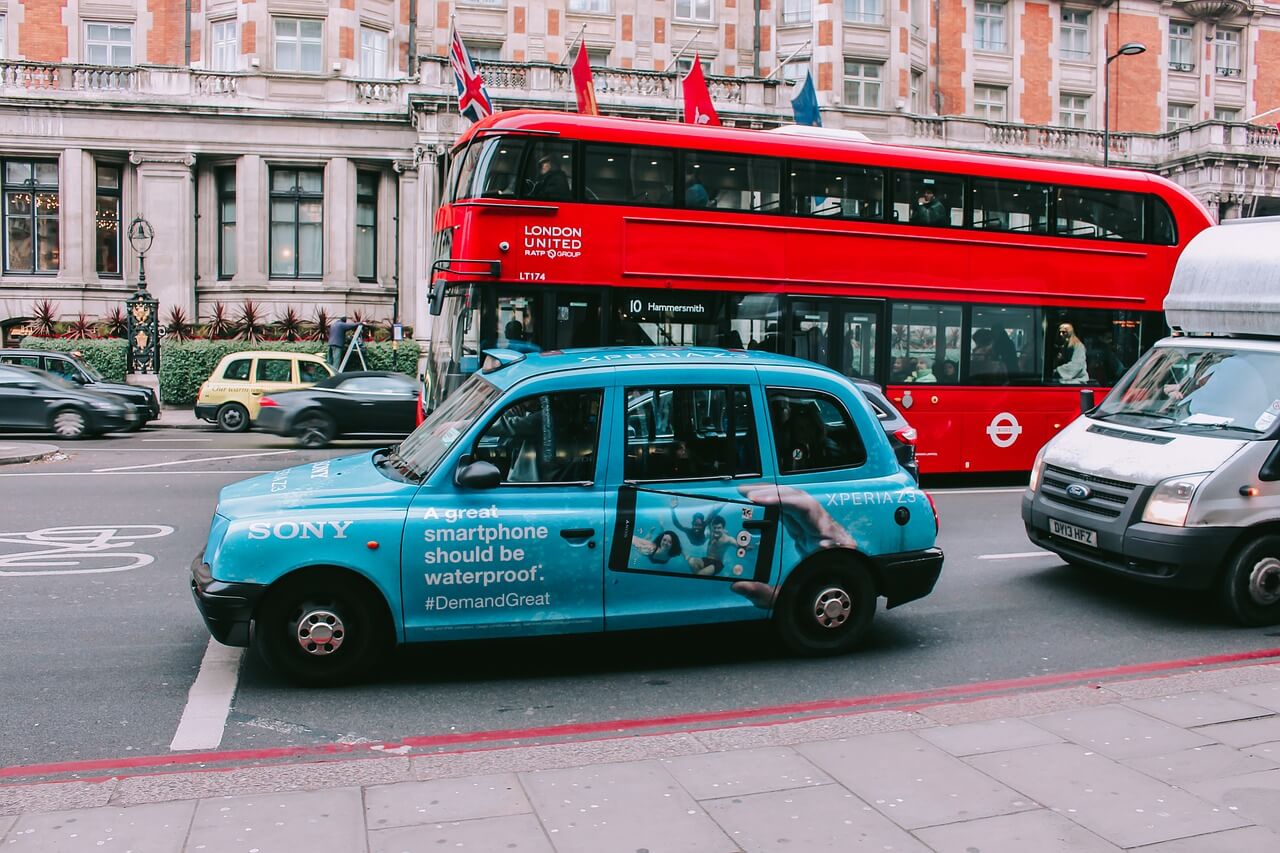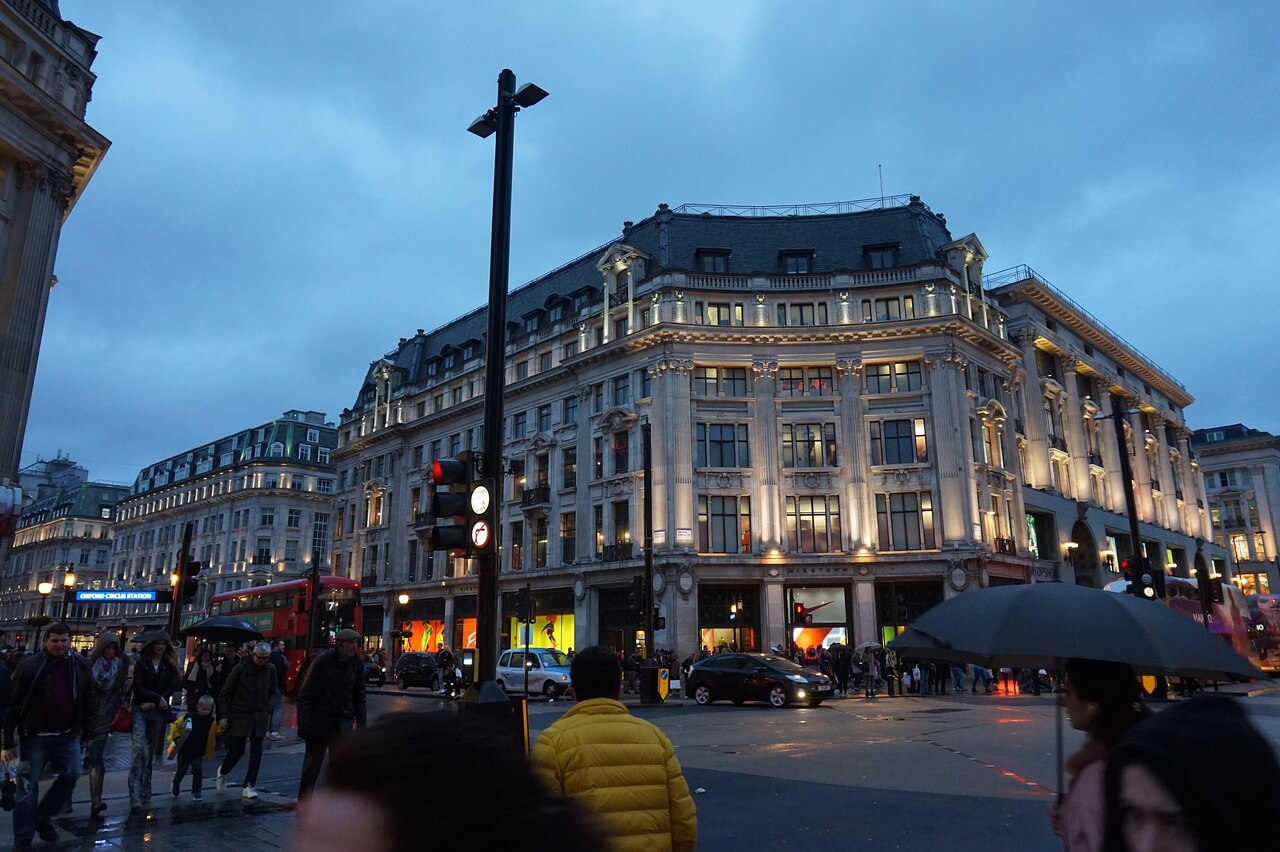 |
CALL FOR ABSTRACT/PAPER |
| Conference Date: | 15th – 16th February 2024 |
| Abstract Submission Deadline: | 5th January 2024 |
| Conference Venue: | King’s College London, U.K |
| Conference Title: | Applied Research International Conference on Multidisciplinary Studies and Education |
Benefits to Attend ARICON Conferences
Full-paper publication (optional) in the following SCOPUS Journals:
Journal Title: Migration Letter
Scope: Social Sciences/ Humanities
Interdisciplinary
https://migrationletters.com/index.php/ml
ISSN: 1741-8984 | e-ISSN: 1741-8992
Publication Frequency: Bimonthly
https://www.scopus.com/sourceid/21000195021
Journal Title: Kurdish Studies Journal
Scope: Business Studies, Management Sciences, Social Sciences, Literature, Language, Education.
ISSN:2051-4883E-ISSN:2051-4891
https://kurdishstudies.net
Journal of Comprehensive Business Administration Research(3029-2697)
Scope: Business Studies, Management Sciences, Social Sciences, Literature, Language, Education.
https://ojs.bonviewpress.com/index.php/JCBAR/index
eISSN 3029-2697 | Published by Bon View Publishing Pte Ltd.
SCOPUS-Indexed
https://www.scopus.com/sourceid/21100468968
Be a Premier Member of OXFORD AWARDS CLUB, U.K
For details: https://londoninstitutesd.co.uk/become-a-member/
Video Conferencing Option (Only few spots available)
In order to restrain our participants from traveling during pandemic covid-19, we have introduced this new feature of video conferencing- A convenient way of sharing and discussing for those who can not travel to the conference destination
HOW IT WORKS:
- After abstract acceptance, send us your presentation slides (PPT).
- Download Zoom App (Mobile/Notepad/Tablet)
- Create (Sign-Up) a Zoom Account (www.zoom.us)
- We will send a meeting invite with an embedded video link. You can find the Meeting ID and Password.
- Verify your camera and audio input and network connectivity set up before joining the conference call and sharing your screen.
- You can leave the meeting whenever you want. Maximum Time Limit for Presentation: 10-15 Minutes
Who Should Attend?
LISD provides an opportunity for academics, practitioners, consultants, scholars, researchers and policy makers with different backgrounds and experience to present their papers in the conference and exchange and share their experiences, innovative ideas, research results, as well as discuss the practical challenges encountered and the solutions adopted.
Conference-committee highly encourage doctorate (PhD) and postgraduate students to present their research proposal or literature review or findings or issues in this conference with a very special registration fees.
Case studies, abstracts of research in progress, as well as full research papers will be considered for the conference program for presentation purposes. Listeners and keen learners are also welcomed in a specific category to attend the conference.
Authors who CANNOT travel to the conference destination for visa or other reasons may PARTICIPATE VIRTUALLY and these authors will have the same publication opportunities as the regular conference presenters.
Passionate about conducting excellent research conferences and keen on celebrating diversity, ARICON believes in filling the space between different cultures and ethnicities in order to let the world become one multi-cultural society in order to exchange and develop ideas that allow it to progress and function at its full potential. Hence, we ensure that our research conferences are conducted in various locations often deemed to be unconventional in order for your perspective to broaden and touch new horizons. However, we ensure that you experience no shortage of comfort during your stay with us and that you return with the wish to accompany us again.
ARICON editorial board consists of seasoned researchers from various parts of the world and from varied disciplines as Pure Sciences, Engineering, Information Technology, Social Sciences, Economics, Business and Management Sciences, Mass Communication etc. We are also partnered with internationally recognized journals with ISSN providing the opportunity to our conference participants to publish their work. Conference proceedings will also be published with ISBN. Supporting you to publish your research is also one of our priority.
Conference Objectives
The Conference seeks to achieve the following objectives:
- To facilitate discussion on business, education, and technology that will expedite global growth and economic recovery
- To establish networking ties between members of academia and industries
- To narrow the gap between academic and practical knowledge through international research
- To develop a series of focused research topics that will benefit the academic world
- To foster the application of methodological approaches in any environment
Conference Tracks
The Conference includes all the sub-tracks of the following wide-range tracks for knowledge-sharing & knowledge-exchange purposes:
- Higher education
- Primary, Secondary Education
- Early-Childhood Education
- Learning & development
- Teaching Methodologies
- Professional Development
- Technology in Education
- Interdisciplinary Studies
- Contemporary Learning Styles
- Classroom Management
- Education and Multidisciplinary Studies
Virtual participant registration fee includes
- The e-book of abstracts with the scientific program of the conferences
- The e-book of full-text proceedings with ISBN number
- Certificate of Participation/Presentation
- Networking
- Opportunity to publish in allied SCOPUS JOURNALS
- Live Or Recorded
- Technical support
Day 1
- The British Library – Upper-Ground Floor Cafe 9:30 – 10:30 am
- Orientation, Networking, and Discussion over English Breakfast Tea or Coffee
- Visit the Library Shop 10:30 – 11:00 am
- River Thames Cruise 11:30 am – 12:30 pm
- Group Photographs at the British Library and River Thames Cruise
Day 2
- King’s College London – River Room
- Scientific Sessions 9:30 am – 5:00 pm
- Lunch King’s Café/Restaurant
- Tea-Breaks and Refreshments
- Award Distribution Ceremony and Official photographs
London City Excursion: Key Highlights
- Enjoy a sightseeing cruise through the heart of London.
- Westminster, Greenwich, and Tower pier.
- London Eye and Big Ben
- Sir Christopher Wren’s masterpiece
- St Paul’s Cathedral
- Tower Bridge
- London Bridge
- London Skyline
- 24hrs Hop on Hop off options at 4 piers of River Thames to explore city attractions as
- British Museum
- Trafalgar Square Lions
- Leicester Square
- Oxford Street
- And many more
The conference registration fee includes
- Access to all scientific sessions at the conference
- Certificate of participation/ presentation
- Congress package and inserts
- The E-abstract book
- Lunch
- Coffee breaks
- Conference proceedings with ISBN code
- Participation in breakout sessions
- Best paper award
- Official photograph
- Free excursion
- On request meeting with the conference chair
Important Dates
- Abstract Submission deadline: 5th January 2024
- Abstract Feedback: within 7 working days
- Early bird Registration deadline: 5th December 2023
- Regular Registration deadline: 5th January 2024
- Late Registration deadline: 14th February 2024
- Conference Dates: 15th – 16th February 2024
- Full Paper Submission Deadline (Optional) 5th March 2024
- Proceedings Publication and Journal Recommendations: 15th March 2024
CONFERENCE CHAIR
SESSION MODERATOR
KEYNOTE SPEAKER
SESSION CHAIR
King’s College London (informally King’s or K
Venue: King’s College London, U.K
The Strand Campus is Home to
The Campus is Close to
- The Houses of Parliament
- St Paul’s Cathedral
- Somerset House and the Courtauld Institute of Art (next door)
- Royal Courts of Justice
- West End theatres, cinemas, and shops
- Covent Garden, where you will find markets, shops, and theatres
- Trafalgar Square is home to the National Gallery and the National Portrait Gallery.
How to Get to the Strand Campus
By Underground: Temple (District and Circle lines): 2 minute walk. Charing Cross (Bakerloo and Northern lines): 10 minute walk, Embankment (District, Circle and Bakerloo lines): 10 minute walk, Waterloo (Jubilee, Northern, Bakerloo, Waterloo & City lines): 12 minute walk, Holborn (Central and Picadilly lines): 12 minute walk, Chancery Lane (Central line): use exit 4 – 15 minute walk.
By Train: Charing Cross: 9 minute walk. Waterloo: 12 minute walk. Waterloo East: 10 minute walk. Blackfriars: 12 minute walk.
By Bus: Buses stopping outside the university: 1, 4, 26, 59, 68, 76, X68, 168, 171, 172, 176 (24 hour), 188, 243 (24 hour), 341 (24 hour), 521, RV1.
A shuttle bus service is available for staff and students (carrying their college ID) wishing to travel between the Guy’s and St Thomas’ hospital sites, the latter also being within walking distance of Waterloo and the Strand. The pick-up and drop-off points are:
At St Thomas’, the lower-ground car park opposite the Florence Nightingale Museum
At Guy’s Campus, on Great Maze Pond on the lay-by to the Bloomfield Clinic.
By boat – commuter river service: From the west, Putney – Blackfriars: get off at either Embankment Pier or Blackfriars Pier.
Parking: No public parking, but a pay and display parking system operates in nearby streets including Surrey Street. Motocycle bays are available in the Strand, Arundel Street, Temple Place and other nearby streets.
Weekend and evening bicycle parking after 20.00 is permitted at the Strand entrance opposite Security. Please note that any bicycles left in this location after 08.30 Monday to Friday will be removed. No responsibility will be accepted for the replacement of locks or costs incurred. No bicycles are permitted to be brought into the buildings or chained to railings.
Students and staff may park at the Strand Campus secure bicycle park off Strand Lane but must register with Strand Campus Security for access. There is bike parking in the streets, and Barclays Cycle Hire bikes are available close by.
Why Does ARICON Offer Free Tours During Each Conference?
In an era of globalization and multicultural sensitivity, study abroad programs are mushrooming all over the academic world. They would grow even further if academics had more time and resources to visit worldwide destinations to prepare future study abroad programs for their students. Our conferences offer the perfect opportunity to blend in presentations with organized visits to locations that would make excellent venues for study abroad programs.
Andy Warhol’s traditional fifteen minutes of fame – on the podium – stretch into days of academic interaction and discovery. It defies logic to treat conference venues as isolated academic silos when they may also double up as potential venues for study abroad programs. As a result, we promote each conference as inseparable from its geographical location, history and culture. We work hard to find sponsors in each conference’s geographical area that offer generous hospitality and tourism packages in parallel with our conference presentations.
We make our attendees’ potential clear to our sponsors. Many graduate students and professors who attend academic conferences have a lifelong career in academia in front of them. As a result, each attendee has the potential to multiply the number of future visitors to a conference’s wider geographical area. “We have memories so that we might have roses in December,” wrote Scottish novelist James Barrie.
Without the opportunity to interact and share one’s research and ideas, what is the point of attending an academic conference? There is no shortage of academic papers on the internet and at the libraries within our universities. One doesn’t need a conference to access academic research. Printed academic papers allow the reader to digest carefully instead of chasing a speaker racing against the clock. To understand what a modern conference should be like, we invite you to attend an ARICON conference and experience.
Publication and Proceedings:
We are indexed in Neilsen’s U.K which provide access not only in the UK but also globally. Later we recommend full papers to our allied journals who possess a range of indexing including SCOPUS londoninstitutesd/lisd-conference-proceedings/. The publication of paper in journal is subject to the quality of paper and the double-blind review report by the journal/s.
Our Allied Journals are Indexed/Accessed in:
(i) SCOPUS(ii) Ulrich’s serials directory, (iii) Cabell’s directories of Educational Curriculum & Methods and Educational Psychology and Administration, (iv) Proquest, (v) ,EBSCO DataBase (vi) Genamics, (vii) the Excellence in Research for Australia (ERA 2012) list compiled by the Australian Research Council, and (viii) Google Scholar (ix) JSTORE (x) Re-PEc (xi) WorldCat (xii) Directory of Open Journals (DJOJ) (xiii) J-Gate etc.
Publish Your Research- An ART OR A SCIENCE!!
Writing for academic journals is exceedingly tricky; even if you overcome the first obstacle and engender a valuable impression or piece of research – how would you then sum it up in a manner that will grab the attention of reviewers?
There’s no simple formula for getting your research published – reviewers’ expectations may vary as per your subject areas; nevertheless there are some challenges that will challenge all academic writers regardless of their discipline. How should you respond to reviewer feedback? Is there a correct way to structure a paper? And should you always bother revising and resubmitting? The questions have been asked by journal editors from a range of backgrounds for their tips on getting published.
Pick No1: Opt the right journal:
Check if your ‘RESEARCH TO BE PUBLISHED’ is within the scope of the journal that you are submitting to. This seems so obvious but it’s surprising how many articles are submitted to journals that are completely inappropriate. It is a wicked sign if you do not figure out the names of any members of the editorial board- so be aware; it is significant OR the credentials of the editorial board members as which university do they relate to? What is their area of expertise? Their experience in the field? Are they in other editorial or in research committees too? Etc. Also, before sending your research to be considered for publication, ideally look through a number of recent issues to ensure that it is publishing articles on the same topic and that are of similar quality and impact.
(Ian Russell, editorial director for science at Oxford University Press)
Pick No. 2: Always follow the correct submission procedures to publish your research
Often authors don’t spend the 10 minutes it takes to read the instructions to authors which wastes enormous quantities of time for both the author and the editor and stretches the process when it does not need to; it tend to thin down your chances of publishing your research; reviewers hate it.
(Tangali Sudarshan, editor, Surface Engineering)
Pick No. 3: Don’t repeat your abstract in the cover letter
We look to the cover letter for an indication from you about what you think is most interesting and significant about the paper, and why you think it is a good fit for the journal. There is no need to repeat the abstract or go through the content of the paper in detail – we will read the paper itself to find out what it says. The cover letter is a place for a bigger picture outline, plus any other information that you would like us to have.
(Deborah Sweet, editor of Cell Stem Cell and publishing director at Cell Press)
Pick No. 4: Common reason for rejections…
Make sure that it is clear where your research sits within the wider scholarly landscape, and which gaps in knowledge it’s addressing. A common reason for articles being rejected after peer review is this lack of context or lack of clarity about why the research is important. Publishing your research is an ART!!
(Jane Winters, executive editor of the Institute of Historical Research’s journal, Historical Research and associate editor of Frontiers in Digital Humanities: Digital History)
Pick No. 5: Do Not over-state your methodology
Ethnography seems to be the trendy method of the moment, so lots of articles submitted claim to be based on it. However, closer inspection reveals quite limited and standard interview data. A couple of interviews in a café do not constitute ethnography. Be clear – early on – about the nature and scope of your data collection. The same goes for the use of theory. If a theoretical insight is useful to your analysis, use it consistently throughout your argument and text.
(Fiona Macaulay, editorial board, Journal of Latin American Studies)
Source: The Guardian
TOP TOURISM IN LONDON AND SUBURBS
INDEXING, ABSTRACTING, LISTING AGGREGATION AND SYNDICATING
